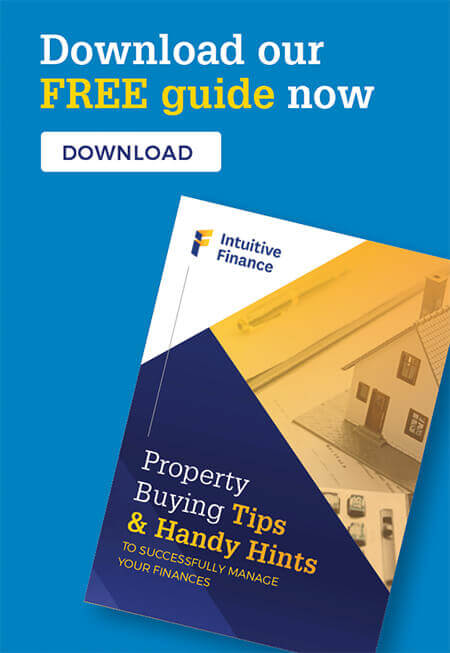It’s that time of year once again – the time that awakes a little sense of dread inside every Australian. It’s tax time. Whilst most of the country is rolling their eyes at the thought of lodging their tax return, Australian property investors actually have something to cheer about.
Whilst investment properties are undoubtedly a fantastic financial opportunity, they’re also a costly venture. Paying off the interest on a mortgage, paying maintenance and repair costs, paying capital gains tax – these are all unavoidable costs when you get into the investment property game. But it’s not all bad news for investors. Thankfully, there are a few tax benefits to owning your own investment property. The trick is understanding what these benefits are and using them to your advantage.
Negative Gearing

Negative gearing means that you are spending more in interest on an investment property – whether that is through mortgage repayments, maintenance or repairs costs – than you are making through the rent from your tenants. Put simply, this means you’ve made a loss on the investment for that year.
But isn’t the whole point of investing in property to make money rather than losing it? Of course this is the main aim of property investment, but these benefits often come from capital growth over time rather than any immediate source of ongoing income. Investing in property is a financial decision for the long term, not the short-term.
For example, if you bought a $500,000 property and took out a $420,000 loan with an interest rate of 5%, the annual interest you’ll pay in the first year is $21,000. Say you receive $380 rent from the property per week, that’s $19,760 per year. You might have had to make a few repairs to the value of $1000 for that year as well. This means you’ve made $19,760 off a property that is costing $22,000 per year – a loss of $2,240. But the value of the property may have increased to $550,000 in that year as well. This means that your wealth has increased by $47,760 and that’s certainly nothing to turn your nose up at.
That’s not to say there aren’t any other benefits to a negatively geared property either. According to Australian taxation law, you can claim the interest portion of the mortgage repayments, as well as many other expenses, as tax deductible. These losses can be offset against your salary when it comes to tax time, reducing the overall tax you’ll have to pay for that financial year.
Expenses on your investment property may include, but are not limited to:
- Ongoing loan fees and interest
- Land tax, strata fees and council rates
- Repairs and maintenance – such as pest control, gardening, plumbing, etc.
- Building depreciation
- Depreciating fittings such as carpeting and appliances
- Phone travel costs for inspections
- Building and landlord insurance
- Advertising for new tenants
- Property management fees
- Bookkeeping fees
The best advice we can give to property investors is to keep records throughout the entire year – not just towards the end – of all the costs associated with owning an investment property. Hiring the services of an accountant will also help you get the most out of these tax deductible items.
Capital Gains Tax

Capital gains tax is exclusive of income tax and applies specifically to property investors. If you’ve chosen your investment property well then this property will increase in value over time so that when you come to selling, you’ll have made a capital gain. The difference between the price you paid for the property and the price you sell it for, otherwise referred to as capital gain, is subject to tax – Capital Gains Tax (CGT). Capital gains is calculated as your net gains. You might make losses and gains throughout your investments but it is the calculation of all these assets. CGT applies to capital gain above $30,000, except of course when this property is your Principle Place of Residence.
It is important to keep records of all gains and losses to ensure that you aren’t paying more of this tax than you need to. It’s also imperative that you understand all the discounts that can be applied under certain circumstances because these might apply to you and save you money!
One such instance is if you’ve owned the investment property for more than 12 months when you sell. In this circumstance you will be eligible to receive a discount of 50% on CGT. You can also include buying and selling costs as deductions. These might include stamp duty, legal fees and agent selling fees. There are so many rules and concessions associated with capital gains tax. Check out the ATO website and book in a chat with a professional for a more comprehensive understanding of what deductions apply to you.
Intuitive Finance – the smart choice

If you’ve enjoyed reading this and want to understand more about other tax deductions, have a read of Intuitive Finance’s tax deductions guide. The world of investing in property and property taxation can be complex so it’s important that you have a professional team on your side to help your financial dreams become a reality.
Now more than ever, you need investor savvy people working on your financial side, who can help you navigate the ins and outs of the tax implications of owning investment property and point you in the right direction to access expert taxation advice and assistance.
The world of banking and finance can be a pretty daunting one for both novice and sophisticated investors and since our establishment in 2002 we’ve focused on providing outstanding service and business standards.
This approach was vindicated when we were recently named Victoria’s favourite mortgage broker at the 2015 Investors Choice Awards.
If you’re considering investing in property and want to learn more about the tax benefits and how it may impact you, contact Intuitive Finance to ensure you have the right information and expert support on your side from the very beginning.
The information provided in this article is general in nature and does not constitute personal financial advice. The information has been prepared without taking into account your personal objectives, financial situation or needs. Before acting on any information you should consider the appropriateness of the information with regard to your objectives, financial situation and needs.
- Timing the Market vs. Time in the Market - July 15, 2024
- On Market vs. Off Market Listings: What’s The Difference - June 17, 2024
- Impact of Victoria’s Land Tax Hike on Property Investors - June 3, 2024









